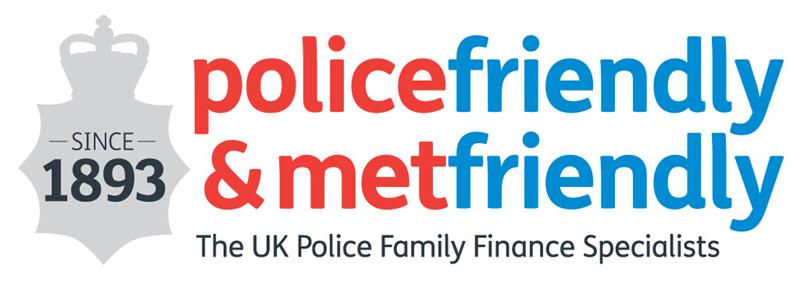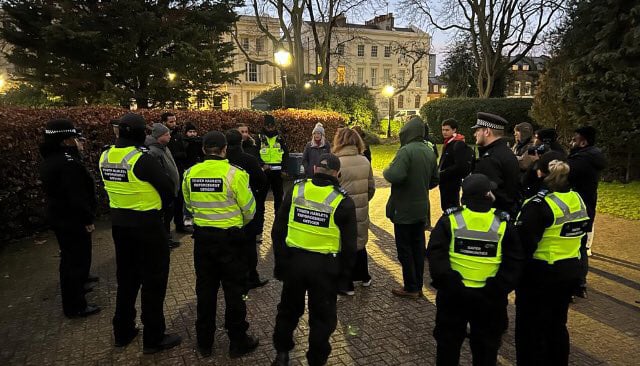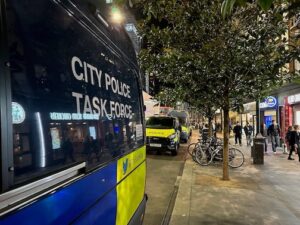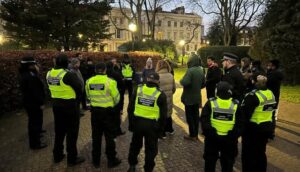I haven’t been on a Ride-Along for a while, so when Supt. Dan Rutland invited me to visit Central East Basic Command Unit (BCU), I was delighted to accept.
As well as joining PCs Zoe Lichfield and Brad Smith on part of their late turn, I was also given the opportunity to talk to many of the teams in this Front Line policing BCU.
I know I still have so much to learn about what the Police Family do on a daily basis, but even so, I was slightly surprised by the variety of work undertaken within a BCU. I was given the opportunity to talk to many of the teams: Online Child Abuse and Exploitation (OCSAE), Jigsaw (management of Registered Sex Offenders), Child Abuse Investigation Team (CAIT), Missing Persons, Sapphire (investigation of sexual offences) and the Exploitation Team, plus the leads for the ADDER team and Neighbourhood Policing, before going out with Zoe and Brad in Response.
While the work was varied, a common thread shone through that afternoon and in previous Ride-Alongs – the pride everyone felt in what they were doing was tangible. It was woven into their words and the passion with which they described their work, whether it was removing predators from the streets, managing and building trust with RSOs, supporting victims out of exploitation or helping a family deal with a sick child.
I always go away from Ride-Alongs or events with at least one thing that stands out for me; this time, there were three.
Despite a brief period of considering applying to the Met as a teenager, policing is something I have always looked upon from the outside, either in my role as CEO of Metfriendly, as a member of the public, or as the daughter of a serving Officer. Having said that, I have often thought, “I can see why you would do that”, or “in a different life, I would want to do that”. The OCSAE team’s work is the first exception to this that I have come across so far. I could not do their job, but I am very glad they do it – they make the world a slightly safer place for all our children, and I am grateful for it. I suspect I feel more strongly as I couldn’t look at the images this team has to look at because I am a mother. It was interesting to note that all the team – except for the Sergeant, who said he didn’t have to look at as many images – were in their late 20s/early 30s and were without children.
The second thing that struck me was another “I couldn’t do that”, but for an entirely different reason.
Ch. Insp. Jai Singh runs Neighbourhood Policing for CE BCU, which incorporates what were Hackney and Tower Hamlets. His team should be 250-strong, but he currently has 50-60 vacancies. I also learnt that, in the first year of an Officer’s career, they spend six months on Response and six months in Neighbourhood Policing. Jai has nearly 100 officers in the first 12 months of their career. In my world, in Metfriendly, I have some roles that I have struggled to fill, but they make up less than 5% of my workforce. In the main, my staff have either been at Metfriendly for a while or are the equivalent of transfers-in from another force; they have the knowledge and expertise, and just need to know the Metfriendly way of doing things. I could not run Metfriendly if I were 22% down on headcount, and 50% of those I had – good as I am sure they are – were so new at their jobs. Respect to Ch. Inspector Singh and your entire Neighbourhoods team.
The third and probably most memorable point arose from a call-out I attended with Zoe and Brad.
We attended the home of a boy who had been released from hospital the day before, having suffered from viral meningitis. The Ambulance Service had called for support as the boy – a normal, strapping 16-year-old – had quickly deteriorated that afternoon. He was trying to get out of his family home but was not really aware of what he was doing or saying, or of what was happening around him. The boy’s home was in a flat several floors up, with a low balcony immediately outside the front door, so there was a very real and immediate danger to him had he been able to get out of the flat.
The boy was scared, confused and in pain.
The family was scared and worried.
The boy’s mother was distraught, helpless in the face of her son’s agony.
The Ambulance Crew were concerned and had called for support from the Police.
The story so far is entirely for context. Everyone was behaving professionally and compassionately in a difficult, emotional situation.
For me, the stand-out element was the position in which the Officers found themselves. As Police Officers, they were called upon by the Ambulance Service to step into a social care space and deal with a medical crisis with no criminality involved.
On the one hand, the Officers were being asked to intervene in an area not covered by their training and remit. They had colleagues whose careers had been put on hold when they had done what they thought was right; the application one had made to Counter Terrorism could be deferred.
On the other hand, the Officers were wearing BWCs; they would be able to prove their actions were necessary, proportionate and requested by the paramedic.
As it happened, one of the boy’s family was able to calm him down enough for him to understand what would happen, and the Officers were not needed – neither Zoe and Brad nor the other two officers who had also been asked to attend. The boy was soon carried out and taken to hospital. I hope he is making a good recovery.
The dilemma the Officers faced makes me uncomfortable.
They clearly wanted to do what was best for the boy and they were ready to do so, but were also very worried that they would be operating out of their comfort zones, expertise, and training. There was also the additional risk that people using 20:20 hindsight might view their actions through a different lens, and they would face criticism.
After my Ride-Along, I spoke to Dan Rutland and the recently appointed BCU Commander, Ch. Super James Conway, about this situation, which they acknowledged was a genuine concern for Officers. James Conway said there was a desire within Police leadership to move away from filling the gaps in social or mental health care but that Officers would always be expected to “do what is right and trust the system to be behind them”.
The moving away from gap-filling in areas where Officers are not trained or resourced to deliver sounds like the right thing to do. I hope society agrees, although I am not sure that will happen any time soon.
 Annette Petchey, CEO Metfriendly
Annette Petchey, CEO Metfriendly
You can read more of Annette’s blog posts and articles here.






